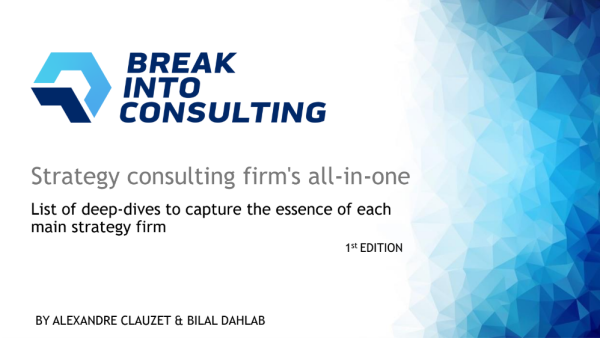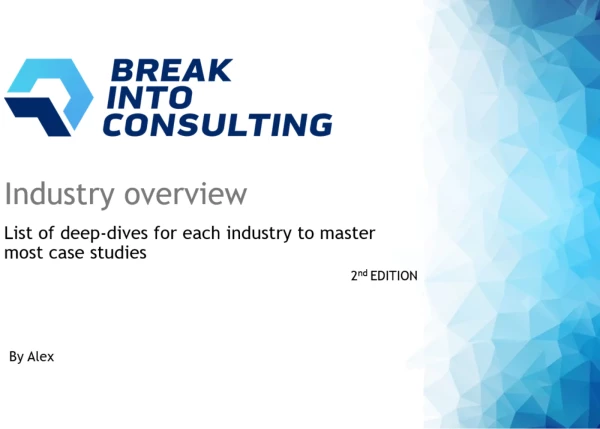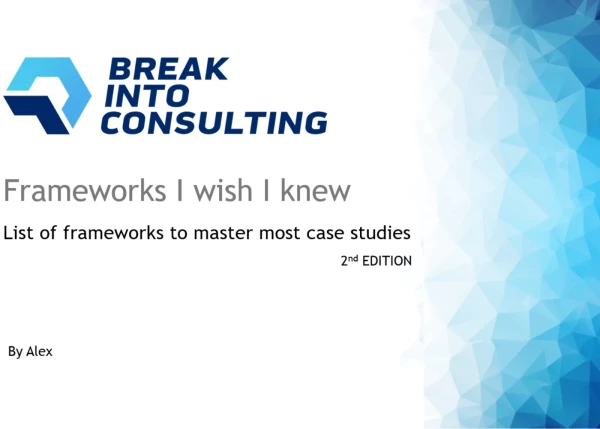Hi!
Ive read Victor Cheng's "Case Interview Secrets" and listened to LOMS. Generally not much material on M&A case-frameworks. He simply states to take the business situations framework and apply it to the meger case, first analyzing the acquiror, then the target, and then finally the combined group. At some point in the case interview secrets book, he mentions that perhaps the Business situations could be combined with the profitability or something like that. This seems like a very long approach/vague structure to present the interviewer with! My question to you therefore; anyone has good, simple approach for an M&A case? (preferably if you have passed rounds). Applied to if they would simply ask you "Company A wants to buy Company B, should they do so? Read the article on this site but felt like that too was pretty long, I also have a finance background so I sense that a merger case will come.
Many thank you!
(editiert)







